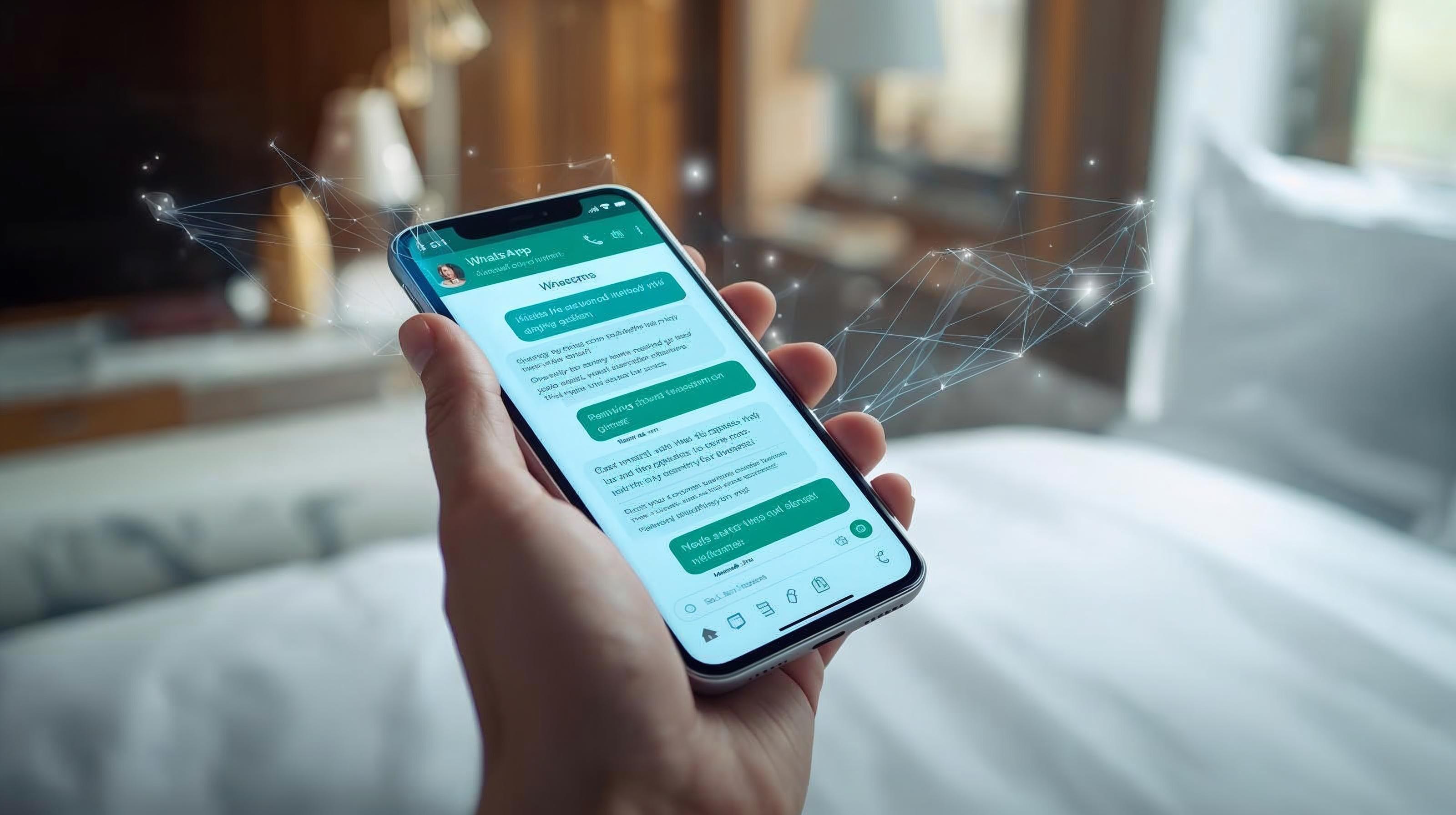Guest Communication via WhatsApp: What Works, What Breaks, and How to Measure It
The new front desk lives in your guests’ pockets
For most travelers today, WhatsApp is the front desk. It’s where they ask questions, confirm bookings, share photos, or complain — all in the same place they chat with friends and family. It’s fast, familiar, and free of friction.
For hotels, that’s both an opportunity and a challenge. A well-managed WhatsApp channel can feel like a natural extension of hospitality itself — direct, personal, and immediate. But at scale, it can also spiral into chaos: unanswered messages, inconsistent tone, and no real visibility into what’s working.
Used right, WhatsApp can become the heartbeat of the modern guest journey. Used poorly, it turns into digital noise.

Why WhatsApp Works
Guests don’t want to “submit a ticket.” They want to send a message.
That’s why WhatsApp wins: it’s personal without being intrusive. Guests already use it to ask for directions, book spa appointments, or share arrival times. It’s familiar, effortless, and real-time.
From a hotel’s perspective, the numbers speak for themselves. Response rates on WhatsApp are far higher than email, and guests reply in seconds rather than hours. Tone feels more human, even when automation plays a role. A well-crafted message — friendly, short, and contextual — can turn routine exchanges into moments of connection.
In a world where service speed defines satisfaction, WhatsApp gives hotels a channel that feels both immediate and intimate.
Where It Breaks
The same traits that make WhatsApp powerful can also make it messy.
When multiple departments jump into the same thread without coordination, conversations fragment. The guest gets duplicate answers — or worse, none at all. When automation replaces empathy, tone becomes flat or robotic.
Common pitfalls include:
- No ownership: Messages bounce between staff or vanish when shifts change.
- Over-automation: Templates that sound mechanical erode trust.
- Lack of measurement: Without visibility into response times or resolution rates, there’s no way to know what’s improving.
WhatsApp is not email — and it can’t be treated as such. Success depends on structure, clarity, and tone.
The best setups combine automation that supports the team with humans who stay emotionally present.
Building a Framework That Works
To make WhatsApp operationally sustainable, hotels need to design it like any other guest touchpoint — with systems, roles, and metrics.
1. Centralize the inbox. All guest messages, whether from front desk, housekeeping, or concierge, should flow through one unified view.
2. Define ownership. Assign responsibility by topic or time of day. Guests shouldn’t feel the handover.
3. Blend automation and tone. Use automated flows for FAQs or confirmations, but train staff to rejoin when emotion or nuance is needed.
4. Integrate with your PMS/CRM. Context matters — knowing a guest’s stay dates or preferences turns chat into service.
The result: a system that feels personal to the guest, but still scales behind the scenes.
How to Measure Success
Data gives clarity, but only if you’re tracking what actually matters. These are the four benchmarks every hotel should monitor:
1. Response Time- How fast are you acknowledging guests? Under two minutes during active hours should be the standard.
2. Resolution Rate- How many requests are fully handled in WhatsApp, without calls or escalation?
3. Tone & Satisfaction- A quick post-chat emoji or one-line “Did we help?” beats a long survey every time.
4. Revenue Influence- Track how many upgrades, add-ons, or experiences start in chat. A friendly recommendation can turn conversation into conversion.
The goal isn’t just faster replies — it’s better relationships. If your WhatsApp channel reduces friction, drives trust, and creates upsell moments naturally, it’s doing its job.
The Human Factor
Behind every “instant reply” is still a person — or should be.
Even the most advanced AI or workflow automation can’t replace the small signals of care: a warm greeting, a local tip, a tone that says I’m listening. Guests recognize authenticity. They can feel when someone is simply typing versus truly engaging.
The smartest hotels use technology to free humans from repetitive work — not to erase them from the conversation. WhatsApp becomes the bridge between efficiency and empathy.
Looking Ahead
Messaging isn’t a trend; it’s the new infrastructure of hospitality. Guests will continue to expect instant, conversational communication — and WhatsApp, with its reach and simplicity, will stay at the center.
The next frontier isn’t about more automation. It’s about intelligent orchestration: combining AI-driven context with genuine human tone. That’s how hotels turn chat into loyalty and data into delight.
Because in modern hospitality, the most powerful technology is the one that helps people sound — and feel — more human.